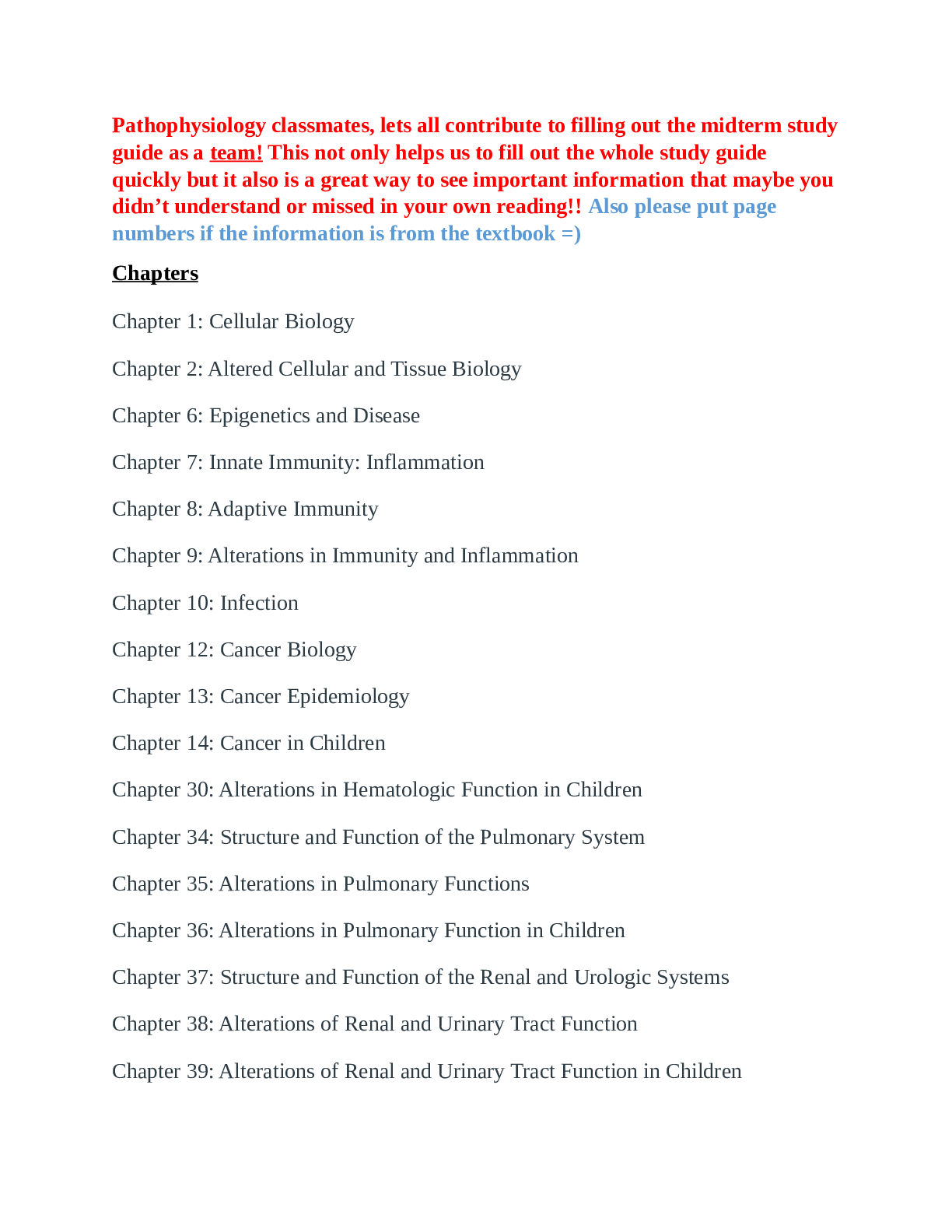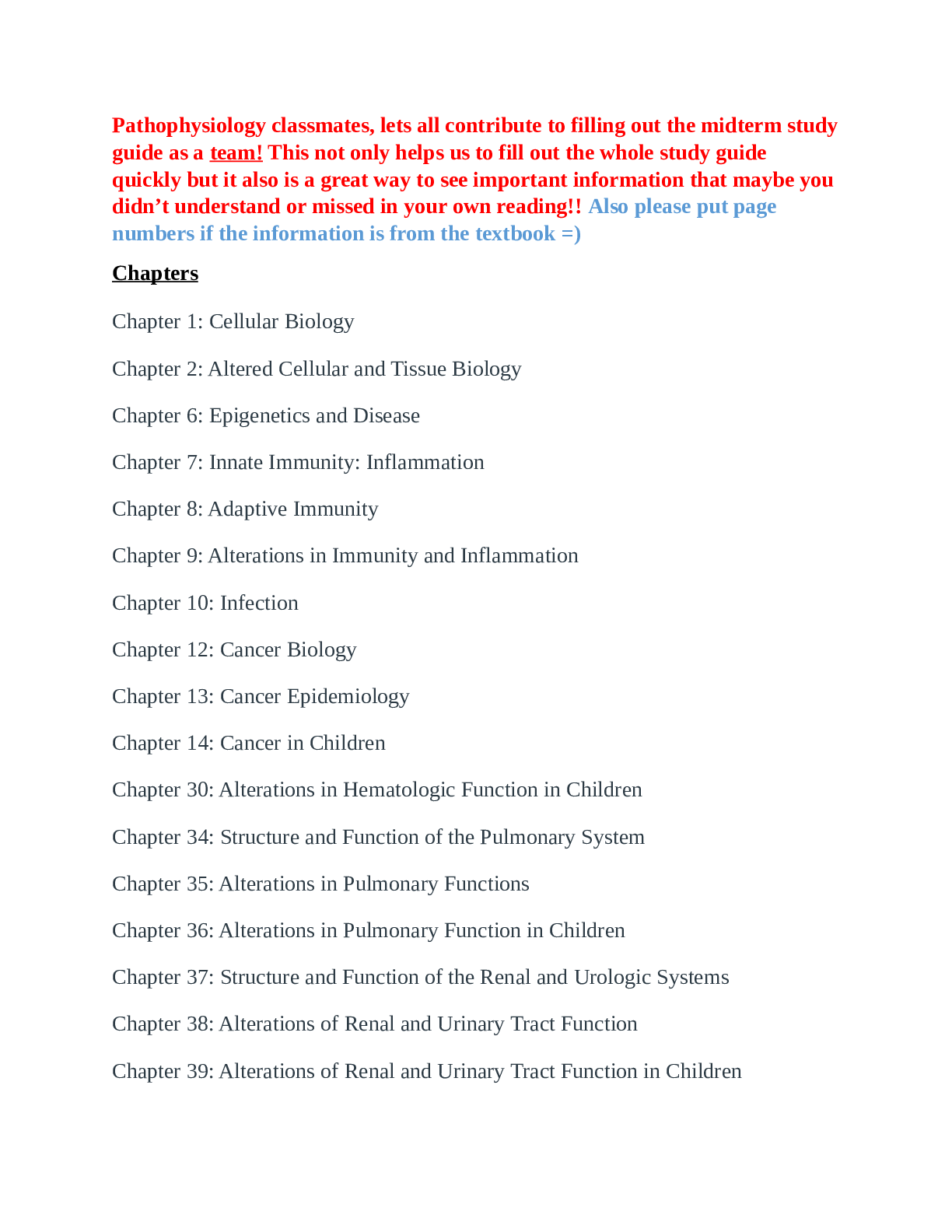NR507 Pathophysiology midterm study guide
Course
Subject
Chemistry
Category
Study Guide
Pages
52
Uploaded By
ATIPROS
Preview 5 out of 52 Pages


Download all 52 pages for $ 14.00
Reviews (0)
$14.00
